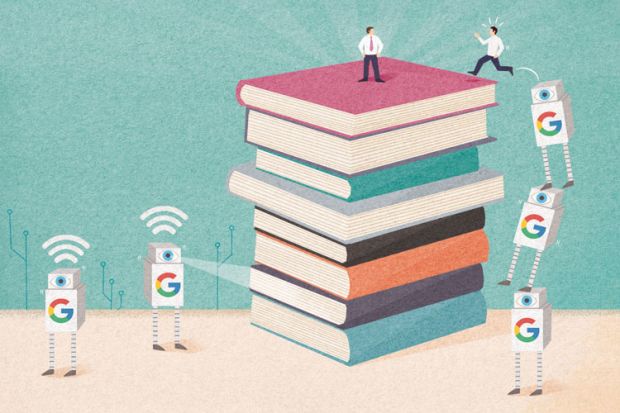For many of us brought up amid the traditional academic rituals of the liberal arts, the development of digital technology has often appeared a threat rather than an opportunity. So it is not surprising that many authors and academics were aghast when Google began the scanning of copyrighted books as part of its Library Project.
This project, which involved a partnership between the digital giant and major research libraries, has already led to the scanning of more than 20 million books since 2004. However, its future was secured only in October, when a lengthy legal challenge brought by the Authors Guild was finally ruled out. The US Court of Appeal found that Google’s scanning of copyrighted books amounted to “fair use”, and did not violate existing copyright law.
Many of my friends and colleagues feel uneasy about this. They are possibly right to be suspicious about Google’s motives and to be apprehensive about the consequences of universal digitalisation for the way that books will be used and the meaning that will be attached to them as the relationship between the reader and the book is altered.
Yet, after some initial hesitation, I am delighted that Google won. The translation of books into digital files that are relatively easy to access on the internet provides a profoundly important resource for both humanist scholarship and academic research. It is a digital database like no other, not restricted to any specific discipline or topic. For instance, when I sought to locate the origins of the term moral panic recently, I was able to access essays, religious tracts and evidence given to 19th-century official inquiries. I felt a sense of elation when I came across the first use of the term in an English publication. And tracking the different ways and contexts associated with its early usage has provided me with unexpected insights into its genealogy.
However, Google Books is more than just an effective research tool. The Google Ngram database of books written in English is a resource that allows culturally and sociologically significant terms and idioms to be correlated with significant shifts in the prevailing zeitgeist across the 19th and 20th centuries. Using this tool, I was able to find out that a shift in attitude towards the idea of authority led to the invention of the term authoritarian in the middle of the 19th century. The subsequent career of this concept can be correlated to an increasing suspicion of authority in the late 19th and early 20th centuries.
Critics of research based on Google Ngram claim that the database flattens out the difference between important and marginal contributions and can give a numerically interesting, but sociologically banal, representation of cultural developments. No doubt the information has to be interpreted and analysed, but it is precisely the fact that Ngram makes no distinction between the famous and the relatively unknown publication that allows it to draw attention to texts that were previously marginalised, offering a new dimension to our understanding of specific cultural developments. As a cultural sociologist working in territory where history, philosophy and literature intersect, Google Books provides an incredible overview of the changing contours of literary developments. But integrating digital technology into 21st-century scholarship does not mean relying on technical solutions to intellectual problems. We should rise above the current obsession with big data that has seen many universities embrace digitally driven methodologies as a routine component of their research ethos.
In my own research on the history of reading, I have been struck by the crude and simplistic way with which non-digitally literate scholarship is dismissed as outdated and irrelevant compared with the mega-conclusions that can be drawn from massive datasets. Some proponents of digital humanities even claim that the traditional practice of the close reading of a few texts has become untenable.
The most disturbing manifestation of digital philistinism is arguably the casual manner with which some of the conventions of scholarship and academic life are treated as if they are akin to prehistoric, obsolete practices. So it is common to hold forth about the end of the book, the end of the lecture, the end of the essay or the end of individual scholarship.
But it is tempting to overreact to this confusion of the medium with the message by dismissing digital humanities entirely. It is far better to embrace our new digital tools and to use them to expand our intellectual horizons. That way, we can get beyond big data for its own sake and begin to develop the insights that might lead to the big idea of our time.
Frank Furedi is emeritus professor of sociology at the University of Kent. His latest book, Power of Reading: From Socrates To Twitter, is published by Bloomsbury Press.
后记
Print headline: It is the message that is important – all media have their own value




